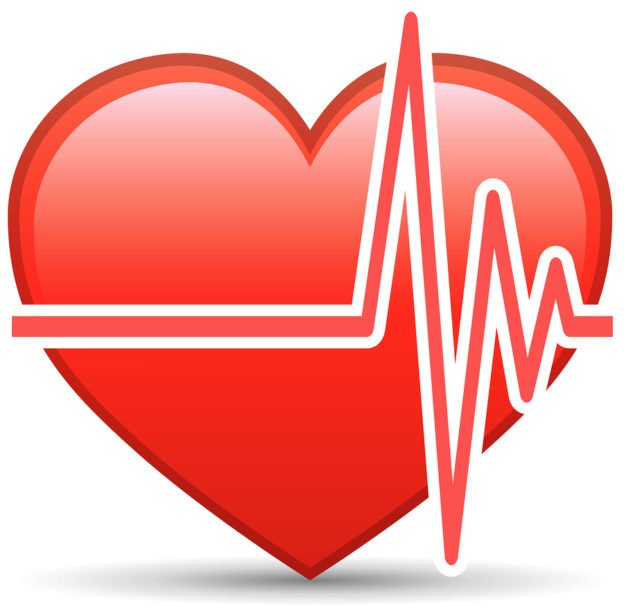By David Blyweiss, M.D., Advanced Natural Wellness
November 13, 2017
- Too much sugar triples risk of dying from heart disease
- Are you eating 152 pounds of sugar a year?
- What to eat instead of refined sugar
Most people only link sugary foods to insulin resistance and diabetes. But, I’ll bet nobody has ever told you what eating too much sugar does to your heart. The truth is, sugar is more dangerous to your cardiovascular health than saturated fat.
Excess sugars in your diet can actually triple your chances of dying from cardiovascular disease. And it doesn’t make any difference if you’re health-conscious in other areas. Even if you exercise, maintain a healthy weight and eat well otherwise, it can still triple your chances.
Among other things, getting too much sugar damages your arteries, increases triglycerides and raises inflammatory markers linked to heart problems. It also fills your bloodstream with deadly small, dense LDL particles. These are the type of LDL that slip into your arteries and cause plaque buildup.
MD Exposes the Hidden Danger to Your Eyes

When your eyesight starts to fail, it's a real problem. Suddenly you can't go to the grocery store... you can't get to the doctor if you have an emergency... you can't meet your friends for dinner…
Your "regular" doctor doesn't have time to keep up with the latest research. And the same goes for eye doctors. They go to school to learn how to fit you for glasses and contacts, but have no way of preventing the damage and loss of eyesight that threatens your freedom and independence.
Let me show you something that explains a LOT about how your eyes work.
In my FREE Special Report, I'll show you a HUGE, untapped resource for your eyes that safely and naturally restores clear, effortless eyesight.
Click here to get started...
(Saturated fat, on the other hand, can actually have a positive effect on LDL particle size. It contributes to the formation of large, fluffy LDL particles that can bounce around in your arteries without accumulating into blockages.)
Now, here’s the thing. Even if you think you’re eating healthy, you may be getting much more sugars in your diet than you’re aware of. That’s because it’s hidden in all sorts of healthy-sounding foods.
Are You Eating 152 Pounds of Sugar a Year?
Today the average American consumes almost 152 pounds of sugar each year. This averages out to about three pounds a week. (To put this in perspective, 200 years ago we were eating only about two pounds of it in the course of an entire year!)
The biggest problem comes from all the sugars hidden in the foods on your grocer’s shelves. And I’m not talking about the obvious sources such as sodas, pastries, candies and cookies.
You’ll also find plenty of sugars in healthy-sounding foods like yogurt, vitamin water, bottled tea, nutrition bars, canned fruits, whole grain breads, sports drinks and dried fruit. So you could be getting much more sugar on a daily basis than you realize.
Are You Suffering From...
- Love handles and a pot belly
- Romance that isn't what it used to
- Forgetfulness and inattention
- Low (or no) strength and endurance
- A sex drive that's shifted into neutral...or worse
If so...you may have Mature Male Burnout. Click here to discover more about this unique condition and what you can do about it.
This is a real concern, because in addition to adding to your chances of diabetes and heart disease, sugar is also associated with several other health problems.
- Just a few weeks on a high sugar diet increases levels of liver fat. And these days we’re finding that excess sugar consumption may be a leading factor in today’s epidemic of non-alcoholic fatty liver disease. This is the most common liver disease in the US and a strong independent risk factor for heart disease.
- Added sugars can lead to leptin resistance. Leptin is the hormone that tells your body when it’s full. When you become leptin resistant this mechanism fails, which places you at much greater risk of obesity.
- Refined carbs and sugars fuel the growth of cancer cells. They provide malignant cells with a steady supply of glucose that they use to gain mass and thrive. To make things worse, excess glucose also affects insulin signaling in a way that directly promotes the spread of tumor cells.
What to Eat Instead of Refined Sugar
In a nutshell, processed sugars have absolutely no nutritional value. At the same time, they come with a myriad of health risks. These sugars increase your chances of diabetes, heart attack, cancer, fatty liver, weight gain and other health problems.
However, the naturally occurring sugars in fresh fruits and vegetables don’t come with the same negative health effects. Indeed, fresh plant-based foods are associated with lower risk of all the health conditions mentioned above. This is due to the synergist combination of sugar, water, fiber, antioxidants and other nutritional components found in them.
So if you tend to crave sweets, try picking up an orange, apple, a kiwi or some berries for a snack. These foods help quench your sweet tooth without damaging your health.
When it comes to packaged foods, always check the sugar content before buying – even if the food sounds healthy. It’s listed in grams right on the nutrition label. Remember every 3 grams of sugar equals a teaspoonful; so that serving of soda with 29 grams of sugar is equal to about 10 teaspoonsfuls in a glass of artificially colored, bubbly water. Then, check the ingredient list. Key words to look for include sugar, sucrose, dextrose, maltose, fructose and syrup.
And one more thing. If you like adding sugar to your coffee or tea, replace it with stevia. Stevia is a safe and natural calorie-free sweetener that doesn’t carry any of the risks you find with refined sugar or artificial sweeteners.
SOURCES:
DiNicolantonio JJ, et al. The Evidence for Saturated Fat and for Sugar Related to Coronary Heart Disease. Prog Cardiovasc Dis. 2016 Mar-Apr;58(5):464-72.
Kearns CE, et al. Sugar Industry and Coronary Heart Disease Research: A Historical Analysis of Internal Industry Documents. JAMA Intern Med. 2016 Nov 1;176(11):1680-1685.
Malhotra A. Saturated fat is not the major issue. BMJ. 2013 Oct 22;347:f6340.
Klement RJ, et al. Is there a role for carbohydrate restriction in the treatment and prevention of cancer? Nutr Metab (Lond). 2011 Oct 26;8:75.








Wow, long email. Lots of information